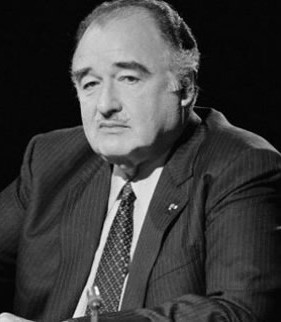Alexandre de Marenches
( soldier, spook, deep politician) | ||||||||||||||
|---|---|---|---|---|---|---|---|---|---|---|---|---|---|---|
 | ||||||||||||||
| Born | June 7, 1921 Paris | |||||||||||||
| Died | June 2, 1995 (Age 73) | |||||||||||||
| Nationality | French | |||||||||||||
| Founder of | Safari Club | |||||||||||||
| Member of | Knights of Malta, Le Cercle | |||||||||||||
French deep politician who founded the Safari Club. He was appointed to the position of SDECE Director by French President, Georges Pompidou.
| ||||||||||||||
Alexandre de Marenches was a head of the SDECE with deep connections who founded the Safari Club. He was appointed to the position of SDECE Director by French President, Georges Pompidou.
Contents
Background
Alexandre de Marenches was born in a French noble familiy. His father was an officer and aide-de-camp to Marshal Foch. His mother, Marguerite Clark de L'Estrade, was an American citizen, widow of the president and CEO of Ideal Standard.
He was a pupil at the École des Roches in Normandy, near his family chateau. His father died when he was only ten years old. During his childhood, his mother organized lunches with family friends such as the U.S. diplomats William C. Bullitt and Robert Murphy.
Early Career
During the Second World War, first Germanophile and Pétainist, he joined the cavalry at the age of 19. After the United States entered the war against Germany in 1941, he became an informer for the American embassy in Vichy (the U.S. did not declare war on Vichy France until a year later), before changing sides via traveling to Spain.
At the end of 1942 he joined the French army in North Africa in the Italian campaign in 1943 where he became the interpreter and officer of General Juin's liaison. He was however hostile to General de Gaulle.
Like Albert Plécy, also associated with the general staff and the future Marshal Juin, Alexandre de Marenches was injured there several times and met a Scottish nurse, who became his wife a few years later.
In January 1946, he was attached to the National Defense staff. He soon was decommissioned, but remained in the Army Reserve, ultimately reaching the rank of colonel. In civilian life he went into business, in particular the management of the family foundry business. He was also shareholder in the company Esthétiques nouvelles, for image research and the future of applied photography, founded by Albert Plécy.
In 1962 he resigned in protest of Charles de Gaulle's granting Algerian independence, a very dramatic moment in French postwar history, placing him on the far right in French politics.
His official post-war career does not explain why he got the top job in the foreign intelligence service in 1970.
Head of SDECE
In 1970, he was appointed director of the SDECE (which in 1982 became the DGSE), by the President of the Republic Georges Pompidou, replacing General Guibaud in this position.
His reforms to the SDECE as well as his proximity to successive ministers and governments enabled him to obtain a substantial increase in the budget of the SDECE, going from 35 million francs in 1971 (plus 35 million in secret funds) to 102 million francs in 1974. (plus 52 million secret funds), then to 115 million in 1976, not counting secret funds. The budget at the end of Marenches' mandate was 400 million francs, against 70 at his arrival.
When Pompidou died and the key to his personal safe was deemed lost, de Marenches was found to be in possession of another.[citation needed]
Brian Tovey (Director of GCHQ) reports that he shared an interest in Italian Art with de Marenches.
De Marenches was a strong proponent of Francafrique, the French assembly of neo-colonial puppet states in West-Africa.
After the election of Ronald Reagan as President of the United States of America, he became one of his closest advisers for the conduct of business in Afghanistan. A staunch anti-communist, he embodies the alignment of French intelligence with Washington and the CIA[citation needed], a sharp turn from de Gaulle's independent nationalist course.
Expoure
In 1978 Le Monde claimed that de Marenches led a domestic campaign of "terrorism" and propaganda to try to keep Francois Mitterand from office during the 1974 elections.[1]
Resignation
Alexandre de Marenches resigned from the job of SDECE Director following a change of government in France, a few months after Francois Mitterand came to power in 1981.
Later Activities
In 1986, along with journalist Christine Ockrent, he co-authored a book, Dans le secret des princes ("In the Princes' secret", published in English as The Evil Empire: Third World War Continues) regarding his days working in the SDECE. Claims were made that concealed archives contained evidence of collaboration with Germans by figures of the French Resistance during the occupation.[citation needed]
In 1992, along with David Andelman, he co-authored The Fourth World War: Diplomacy and Espionage in the Age of Terrorism, a book in which he predicted the rise of "terrorism" as a new form of warfare. This book was a great success among American elites following the events of 9/11.[citation needed]